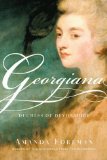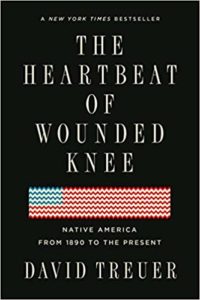 The Heartbeat of Wounded Knee: Native America from 1890 to the Present by David Treuer
The Heartbeat of Wounded Knee: Native America from 1890 to the Present by David Treuer Published by Riverhead Books on January 22, 2019
Genres: Nonfiction
Pages: 512
Format: Paperback
Buy on Amazon
Goodreads

A sweeping history—and counter-narrative—of Native American life from the Wounded Knee massacre to the present.
Dee Brown's 1970 Bury My Heart at Wounded Knee was the first truly popular book of Indian history ever published. But it promulgated the impression that American Indian history essentially ended with the 1890 massacre at Wounded Knee—that not only did one hundred fifty Sioux die at the hands of the U. S. Cavalry but Native civilization did as well.Growing up Ojibwe on a reservation in Minnesota, training as an anthropologist, and researching Native life past and present for his nonfiction and novels, David Treuer uncovered a different narrative. Instead of disappearing, and despite—or perhaps because of—intense struggles to preserve their language, their culture, their very families, the story of American Indians since the end of the nineteenth century to the present is one of unprecedented growth and rebirth.
In The Heartbeat of Wounded Knee, Treuer melds history with reportage and memoir. Beginning with the tribes' devastating loss of land and the forced assimilation of their children at government-run boarding schools, he shows how the period of greatest adversity also helped to incubate a unifying Native identity. He traces how conscription in the US military and the pull of urban life brought Indians into the mainstream and modern times, even as it steered the emerging shape of their self-rule and spawned a new generation of resistance. In addition, Treuer explores how advances in technology allowed burgeoning Indian populations across the continent to come together as never before, fostering a political force. Photographs, maps, and other visuals, from period advertisements to little-known historical photos, amplify the sense of accessing a fascinating and untold story. The Heartbeat of Wounded Knee is an essential, intimate history—and counter-narrative—of a resilient people in a transformative era.
The Heartbeat of Wounded Knee is the first book I finished in 2020, and it’s a fitting start. I’m really glad I read it. Treuer’s book is based, in part, on ethnography he did in the last ten years. In addition to capturing the lives of a broad, diverse, and numerous (though not as numerous as it should be) people, he captures the stories of individuals—everyone from a cousin involved in MMA and another living off the land, collecting pinecones, leeches, and cranberry bark in addition to ricing, to Indians* at the forefront of a new movement in indigenous food and fitness. Treuer explains in his epilogue that his goal in writing this book was “to catch us not in the act of dying but, rather, in the radical act of living” (453). His call to action is for all of us to consider what kind of country we want to live in and to work in our ways to build that country.
Treuer’s writing is beautiful. I did not realize he had written fiction, as this was my first of his books, but I was not surprised to learn it after seeing his way with words in this book. Many nonfiction writers tend to dispense with pretty prose in favor of utilitarian fact-telling—the writing is a means to an end but not necessary to the journey itself—but Treuer’s writing is a meld of poetic storytelling—at times harrowing and other times funny. I appreciated his voice and thorough research.
The book is structured in seven parts:
- Narrating the Apocalypse: 10,000 BCE-1890. If this seems like a lot of compression, remember that Treuer’s goal is to discuss the history since Wounded Knee, and this part was necessarily compressed to allow for the space to do that.
- Purgatory: 1891-1934. This part covers the period of the Dawes Act, Allotment, Indian boarding schools, the institution of the Bureau of Indian Affairs (BIA).
- Fighting Life: 1914-1945. This part covers not only Indian involvement in both World Wars but also the Meriam Report that investigated the state of Indian affairs and the government’s Indian policy.
- Moving on Up—Termination and Relocation: 1945-1970. This part covers the migration of Indians to urban areas, where the majority of Indians live today, and the Termination Act of 1953, which “proposed to fix the Indian problem once and for all by making Indians—legally, culturally, and economically—no longer Indians at all” (250).
- Becoming Indian: 1970-1990. This part discusses the reclamation of indigenous culture as part of the American Indian Movement (AIM) and also the sort of pan-Indianism that resulted when people of different nations and tribes joined forces as well as the beginning of US policy that favored Indian interests.
- Boom City—Tribal Capitalism in the Twenty-first Century. This part covers the rise of casinos and other capitalist ventures that have enabled some nations and tribes to become successful and even wealthy.
- Digital Indians: 1990-2018. This part describes the efforts of modern Indians to reclaim culture (including language and foodways) and be Indian in the modern world.
One thing I appreciated as a fellow Gen-Xer was what I would describe as a uniquely Gen-X take on history, particularly on AIM. I don’t mean Treuer is cynical because he is anything but cynical, but he is honest. I think many civil rights movement leaders tend to be lionized rather than seen as flawed people who did some very good things but who also were not perfect and even did some very wrong things. It might just be me, but I feel like that is a particularly Gen-X take on civil rights movements because we were the generation after Boomers, who thought they were idealistic and would change the world—they protested the Vietnam War, they attempted to open up America’s puritanical views on sex, they fought for rights for Black people, women, and (to a much lesser extent) Indians. But the 1980s seems to have wiped out their remaining idealism. Ronald Reagan’s ideas won the day, and they voted for that country, so they must have wanted it. So when people want to accuse Gen-Xers of being cynical, remember what we saw with our older siblings and parents who were Boomers. Treuer’s view of the leaders of AIM was much more balanced. Yes, they drew attention to Indian concerns and united people from diverse Indian backgrounds toward a common goal. They also sidelined Native women and engaged in a great deal of violence. I appreciated this nuanced point of view. Part of this Gen-X so-called cynicism is actually a core of realistic optimism I feel like some Gen-Xers have (some folks might argue with me about that), and Treuer has that realistic optimism. It is possible for us all to improve our country, but it will take active participation in shaping that future, and we have to understand why we are where we are today.
*Treuer uses this term for indigenous people in the United States, and I understand it is one of many preferred terms, hence my use of it in this review.
Note: I purchased this book for research for my Social Justice course and have not been compensated by anyone for this review.

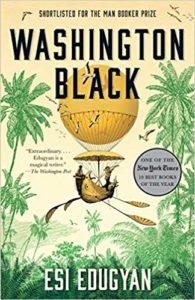

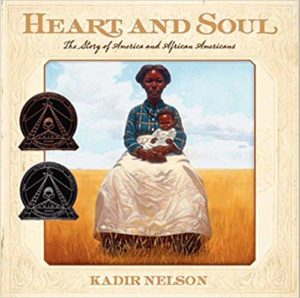
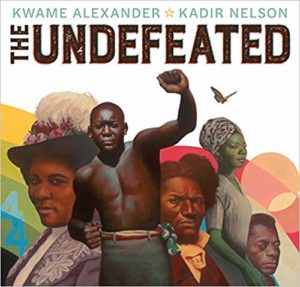
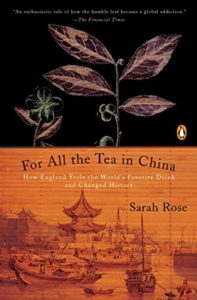 For All the Tea in China: How England Stole the World's Favorite Drink and Changed History by
For All the Tea in China: How England Stole the World's Favorite Drink and Changed History by 

